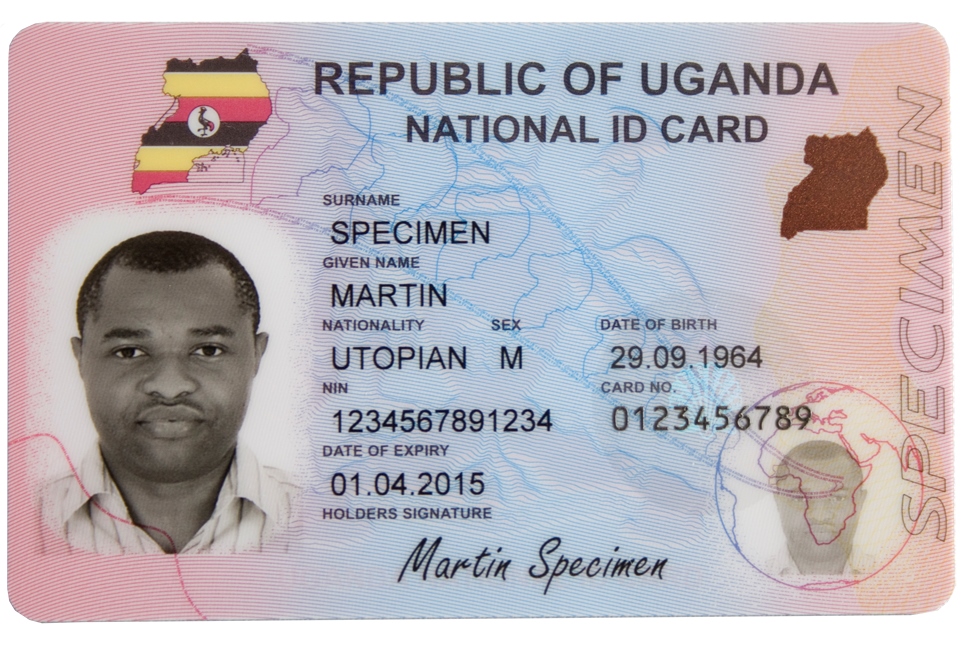| Kampala, Uganda
World Record in Government Solutions

According to the independent World Bank Report which was published in late 2018, Uganda’s National ID project is Africa’s fastest implemented and working identification document project.[1] In fact, this means that no other country on the African continent has issued their first or new national ID more quickly than Uganda did. This is not only the current world record in state-of-the-art government solutions, but also a best-practice example for the success of German-Ugandan relations which have been maintained for more than five decades. “Mühlbauer has provided excellent service and reliable support for the biometric enrollment of approximately 5 million citizens in the very short time frame of only 6 weeks”, says A.M. Kirunda Kivejinja, 2nd Deputy Prime Minister and Minister of East African Affairs of the Republic of Uganda.
Identification as the Foundation of a Society
Ever since its independence in 1962, the Republic of Uganda has experienced a rapid socio-economic transformation. With the growth in electronic transactions and exchanges, digital identity offers Ugandan citizens the modern means of identification they require to have secure access to online services.
According to the Ugandan national census of 2014, only 8 percent of the country’s population had a birth certificate to prove their legal identity. In 2015, the Registration of Persons Act (ROPA), and the National Identification and Registration Authority (NIRA) switched to a multi-sectoral approach to identification in Uganda that was partly driven by the decision to use the national identification card (NID) as the unique identifier for the 2016 general elections. For this very reason, the Government of Uganda partnered with German high-tech company Mühlbauer to jointly realize the National Security Information System (NSIS) project.
The Project Scope
As part of the Uganda NSIS project, Mühlbauer did not only take care of the ID card’s artwork design, the delivery of blank ID cards and high-tech machines for the personalization of the electronic ID cards with state-of-the-art security features, but also provided 8.000 mobile enrollment and issuance units within just 8 weeks after contract signature. In addition, 1.000 mobile power supplies were delivered, 87 district servers for data collection were installed and a complete spare part and maintenance management was set up.
Furthermore, the project also comprised the biometric voters’ registration of around 5 million Ugandan citizens by means of a sophisticated biometric system and the setup of a National Identification Register (NIR), a biometric electoral register for voter identification.
The first campaign enrolled around 16.5 million Ugandans in the National Identification Register. The second campaign targeted about 10 million learners in school, aged five years and above, in primary, secondary, and post primary institutions. All individuals registered are instantly issued an enrollment receipt, as well as a NIB Certificate and – those 16 years and over – a biometric National ID Card. So far, all the registration campaigns enrolled around 30 million Ugandan citizens.
All in all, around 75 percent of Uganda’s adult citizens were provided a life-time national identification number based on reliable fingerprint biometrics and issued tamper-proof identification documents. They are now able to use government and private services requiring a secure identification – a fact which in turn helped to boost activity in the public sector and to increase competitiveness in the private sector.
[1] Source: World Bank. 2018. ID4D Country Diagnostic: Uganda, Washington, DC: World Bank License: Creative Commons Attribution 3.0 IGO (CC BY 3.0 IGO).
Press Contact:
Lara Schmaus
Phone: +49 9461 952 – 1579
Email: Lara.Schmaus@muehlbauer.de
